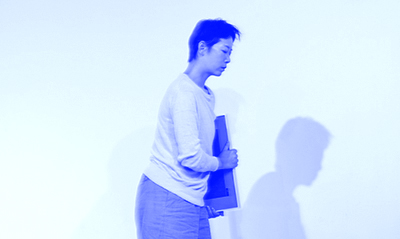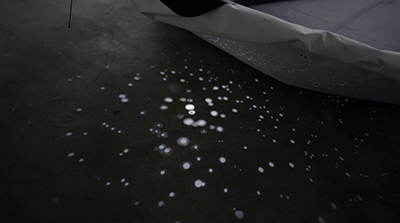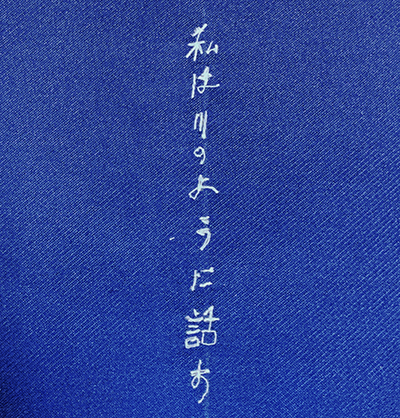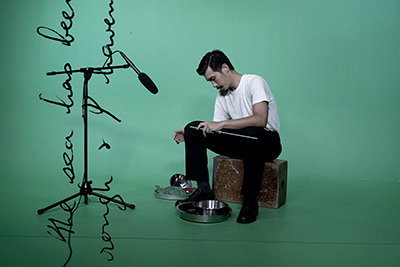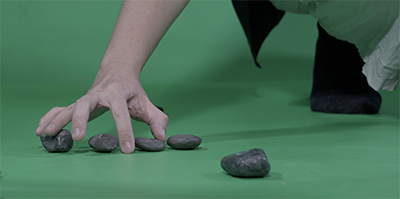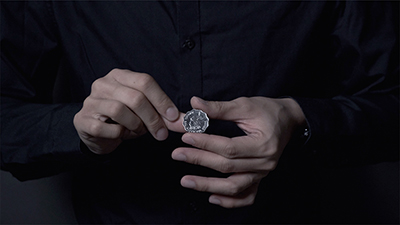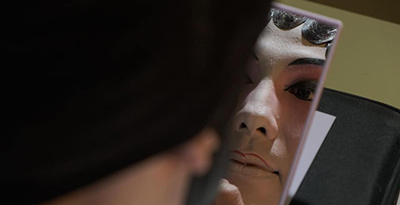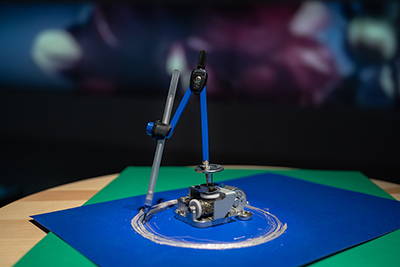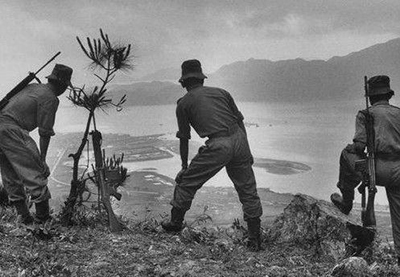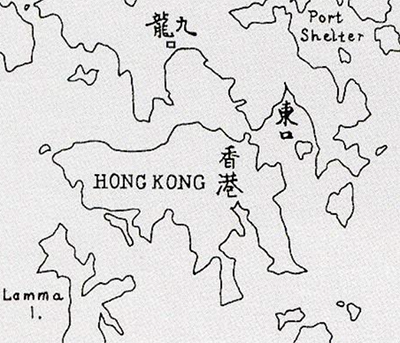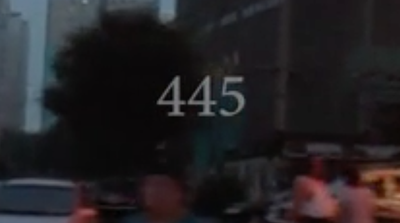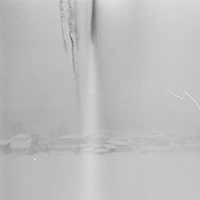
(disabled Novel, DVD PAL, 19 mins)
The film script of “Disabled Novel” is based on the eponymous novel I wrote. This film has no dialogue and is divided into 13 parts, 90% of which consists of internal soliloquy. Using the theme of “lost” as a starting point, the film lays bare the odd sense of melancholy that parades life. Transferring reality, memory and fantasy, it reconstructs the psychological pathways of urban life with broken fragments.
<殘話小說>的電影文本是根據本人所寫的一本同名小說為藍本。全片為默片,分13節, 95%為內心獨白。以“lost”作為起始,拷問生活中莫名的惆悵感。內容穿梭現實、回憶、幻象,以殘段組織個人生命在城市生活的心理軌跡。
 disabled Novel, self-published, 2010, Size B5
disabled Novel, self-published, 2010, Size B5
The 16th ifva Jury Meeting Transcript
Jury Members: Ann Hui, Yip Yuk Yiu, Shek Kei, Lorna Tee, Vernie Yeung ifva representatives: Teresa Kwong, Kattie Fan
Ann Hui: I like《disabled novel》, which I find quite refreshing and interesting. It handles the juxtaposition of different realities very well. Very often those of us who make films or are involved in creativity may observe people on the streets, but it is hard to come up with fresh ideas and feelings. This film gives me a lot of feelings. Also it is very quiet, and uses very few elements.
Shek Kei: The director only used subtitles.
Ann Hui: Usually such works are hard to do because they can often appear cliched and boring. But I was never bored when watching this film.
Shek Kei: Is it because it is short?
Ann Hui: Perhaps, but I didn’t mind. I just kept watching, and I felt that its observations and the feelings it creates are exactly those that I experience when I am in this city.
第十六屆香港獨立短片及錄像比賽
評判:許鞍華, 葉旭耀, 石琪, 鄭碧雪, Vernie Yeung ifva代表:鄺珮詩,范可琪
許鞍華:我蠻喜歡《殘話小說》,它很refreshing和interesting。同時它掌握了不同現實碰撞出來的東西,很多時候,我們這些拍戲或做creativity的人,走在街上觀察到一些東西,是撞擊不到東西或感覺出來的,這部戲時常給我感覺。還有它很靜很靜,當中用到的元素是最小的。
石琪:它好像只是用了字幕。
許鞍華:通常這種作品很難討好會讓人覺得它很舊和很悶,但我一直看也不覺得悶。
石琪︰因為它很短?
許鞍華︰可能是,但我沒計較。我一直看,只覺得它的observation和撞擊出來的感覺,是我身處現在這個城市會遇上的那種感覺。通常這種作品很難討好,但我不覺得悶。
Hong Kong Soft Power. Art Practices in the Special Administrative Region 2005-2014. Hong Kong
by Professor Frank Vigneron, Published by The Chinese University Press, 2018
 Law Yuk Mui is a plastician (contemporary artist) who has extensively studied the domain of the books made specifically as plastician research by practitioners. One of her works of 2010 also explored ideas related to, among other things, the postcolonial situation of Hong Kong. In Disabled Novel, in reality a collection of texts and image coalescing into an extremely personal narrative about the context of Hong Kong and life of the artist at the end of the first decade of Millennium.
Law Yuk Mui is a plastician (contemporary artist) who has extensively studied the domain of the books made specifically as plastician research by practitioners. One of her works of 2010 also explored ideas related to, among other things, the postcolonial situation of Hong Kong. In Disabled Novel, in reality a collection of texts and image coalescing into an extremely personal narrative about the context of Hong Kong and life of the artist at the end of the first decade of Millennium.
Law chose the expression “disabled novel” for the English translation, there are many subtleties to the understanding of this title’s connotations that were no doubt part of the artist’s intent. Canhua 殘話 could also be rendered as “cruel words,” “wretched words,” or simply “bad words,” the term can 殘 being synonymous with something utterly unwanted. Xiaoshou小說 is the translation of the English word “novel” and, although it has now lost that connotation and simply refers to fiction it literally means “small say” and refers to the fact that until late in the nineteenth century, fiction was not considered to be a form of high art in Chinese culture (only poetry, philosophy, and essays were). In any case, discrepancies between the Chinese and English titles chosen by Hong Kong artists are extremely frequent and have been an endless source of interest for bilingual art lovers.
The ambiguity of language, so clearly a part of a culture relying on multiple tongues for everyday life, also occupied an important place in Disabled Novel. For Instance, the plastician asked her friends to translate into Chinese the English sentence “You’ve lost,” and the results were revealing not only of the instability of language itself and the boundaries between different tongues, but also of the psychology of the translators and their choice of wording. Translating translation in order to show the vagaries of meaning is risky endeavor, but it would be possible to retranslate the expressions thus chosen as, for instance, “You have lost [as in losing a game]” (你輸咗,this sentence is in Cantonese, the Putonghua would be slightly different: 你輸了), “You have lost your ways” (你已迷路), and so on. Disabled Novel is also the title of a 19-minute video, where the artist, using only subtitles to reproduce the text of the novel, shows the original moving images she made to create her work.

The Collapse of a building on Ma Tau Wai Road in 2010 revealed how some of the structures built in the 1950s had become fragile due to lack of maintenance and initial shoddy construction. Such substandard construction no longer exists (or so one would hope), but the discrepancies between the marketing campaigns created to sell these homes (advertising showing vast parks full of beautiful people under blue skies) and the reality of these housing projects (minuscule and badly designed apartments in giant skyscrapers) was particularly jarring in the case of Lohas Park, a project owned by the Mass Transit Railway Corporation and built not far from a landfill that generates intensely bad odors. But these specific issues related to the, in 2011, already painful situation of real estate in Hong Kong was also contextualized in Disabled Novel by the new forms of nationalism that appeared in the SAR. Many pages of the novel are precisely about the ambiguities of life in Hong Kong, some of them treated also by very young artists Lee Chi Ho, and the unusual post-colonial situation of Hong Kong also addressed by Law Yuk Mui. Four pages where dedicated to the photographs of a flag ceremony and titled 2010/2/11, Nanhai Sunset 南海太陽: “6:00, nightfall at the Golden Bauhinia square. Recording the flag lowering ceremony, I discovered that there are many palm trees in Hong Kong. But why have I never felt the mood of the leisure? Flag-lowering ceremony with the screnery of palm trees a few South-Asian melodies came out of my mind. Like the Sun, flag-raising and flag-lowering is going on time every day.”
